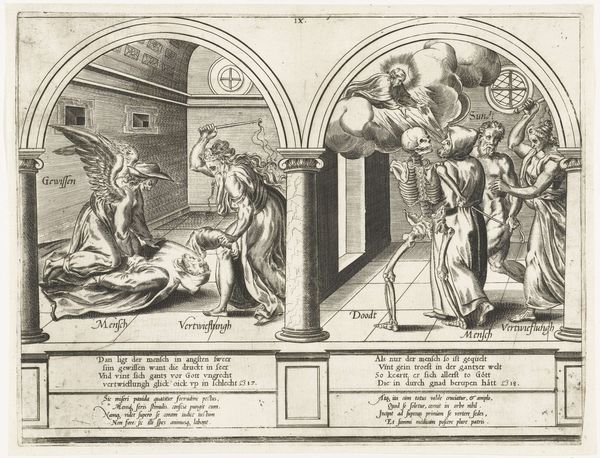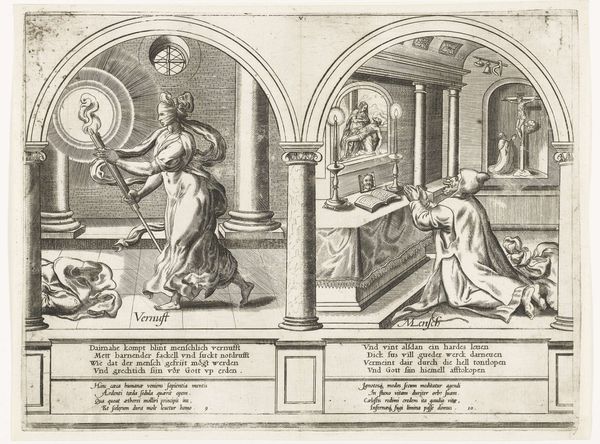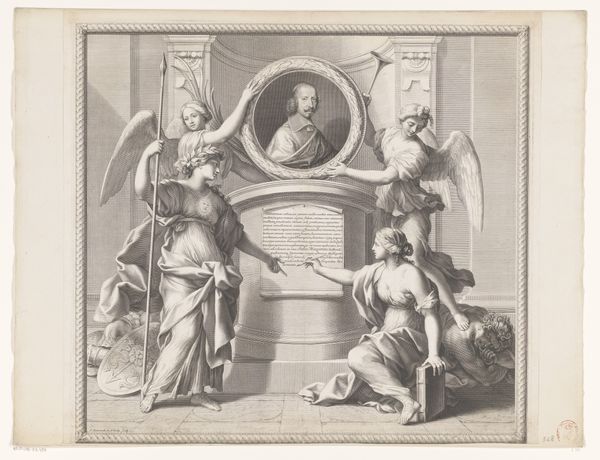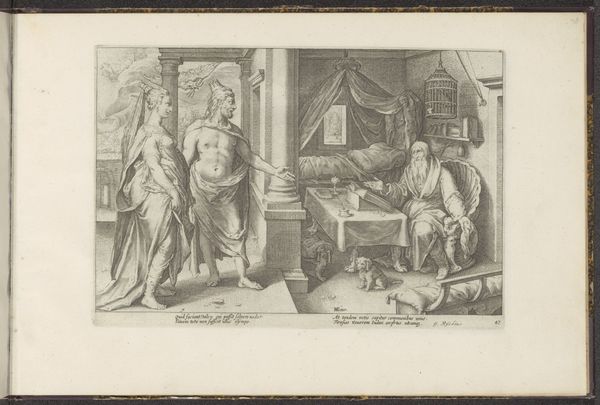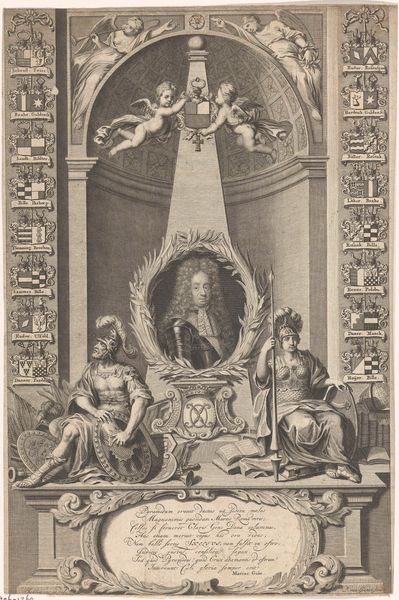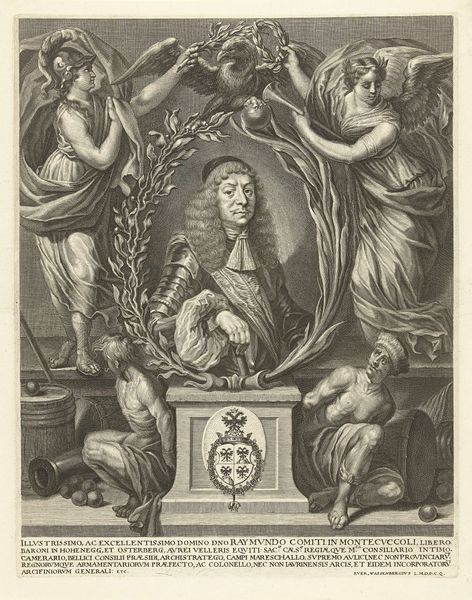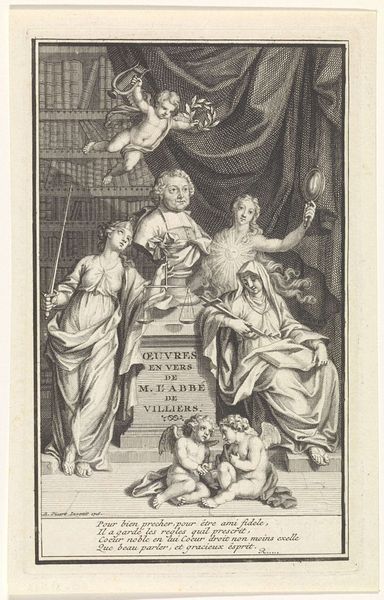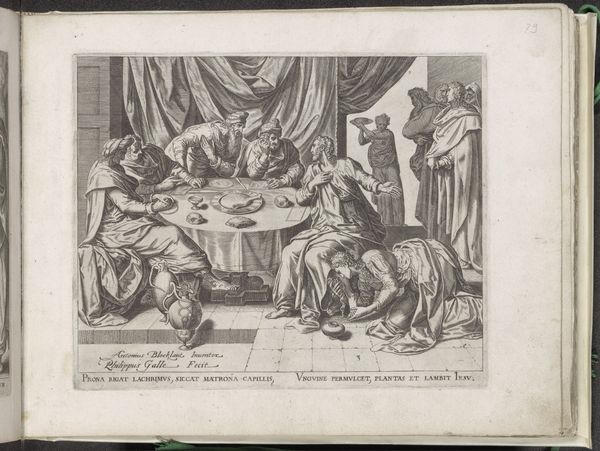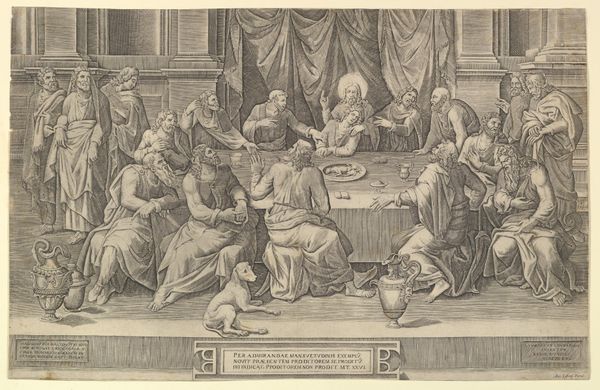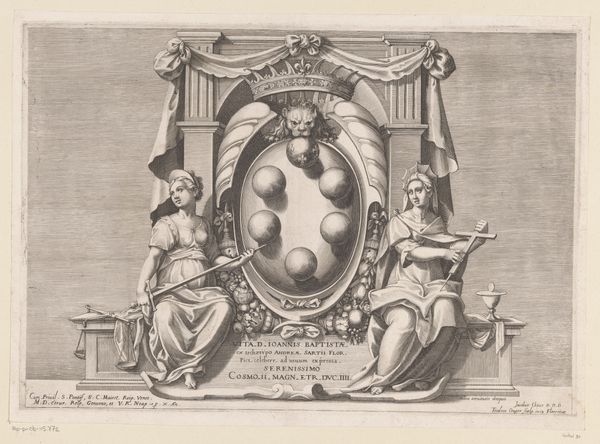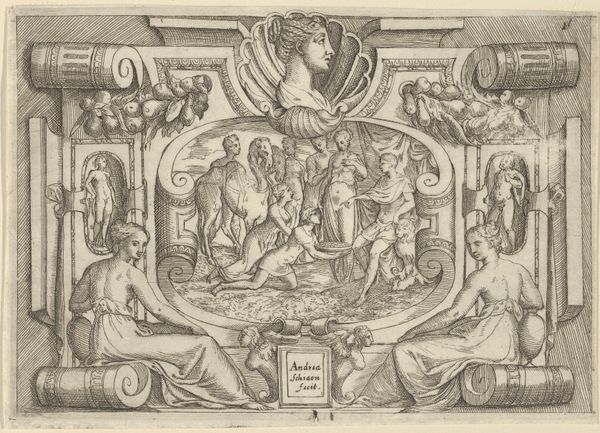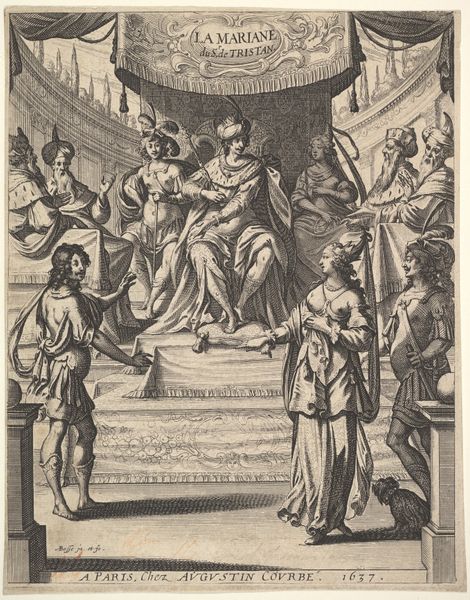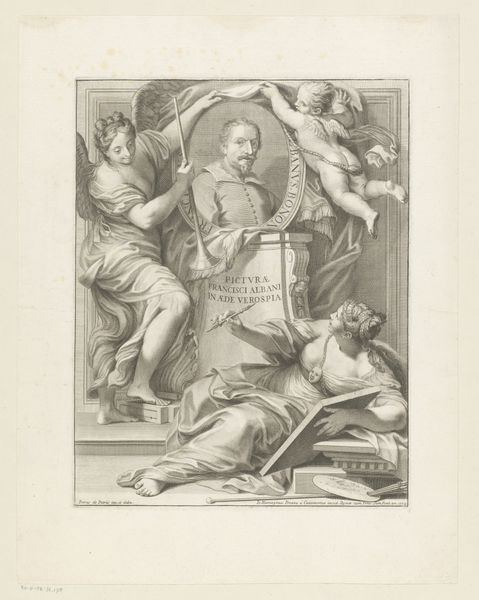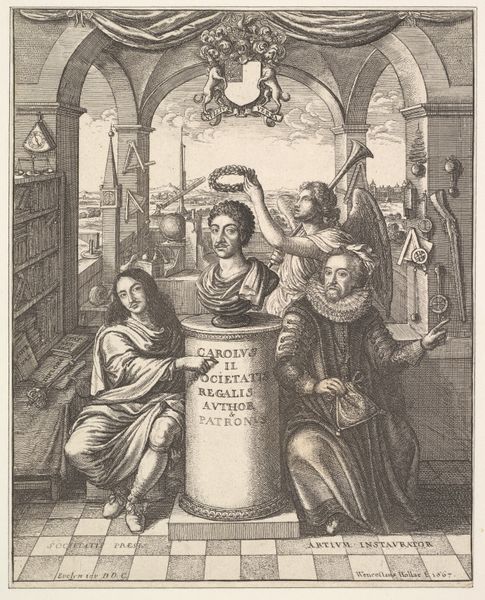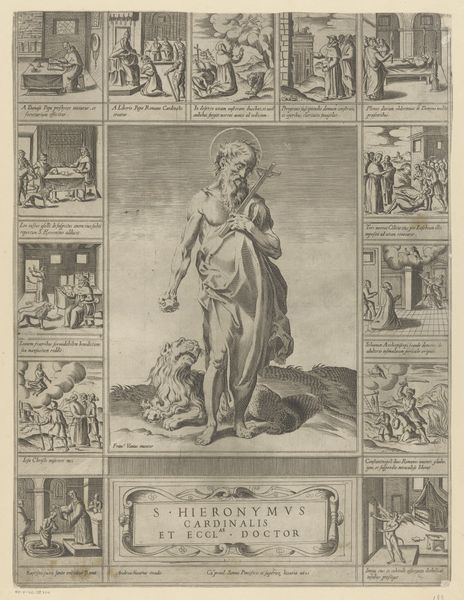
Portret van een man met een hogepriester en personificaties van Geloof, Waarheid en Waakzaamheid 1608 - 1688
0:00
0:00
claudemellan
Rijksmuseum
engraving
#
portrait
#
allegory
#
baroque
#
old engraving style
#
figuration
#
line
#
history-painting
#
engraving
Dimensions: height 426 mm, width 525 mm
Copyright: Rijks Museum: Open Domain
This undated engraving by Claude Mellan depicts a man with a high priest and personifications of Faith, Truth, and Vigilance. The image creates meaning through visual codes, cultural references, and historical associations. Made in France, Mellan’s work reflects the religious and political tensions of 17th-century Europe, particularly the Counter-Reformation's emphasis on religious authority and moral rectitude. The portrait's allegorical setting, complete with classical figures, would have appealed to the elite circles of the time, but it also reinforced the social hierarchy by associating the sitter with timeless virtues. The presence of religious symbols and allegorical figures also speaks to the institutional role of the church in shaping cultural values. As art historians, we can delve deeper into Mellan's world by examining period documents, theological tracts, and social histories to understand the full context of this complex image. The meaning of art is always contingent on its social and institutional context.
Comments
No comments
Be the first to comment and join the conversation on the ultimate creative platform.
